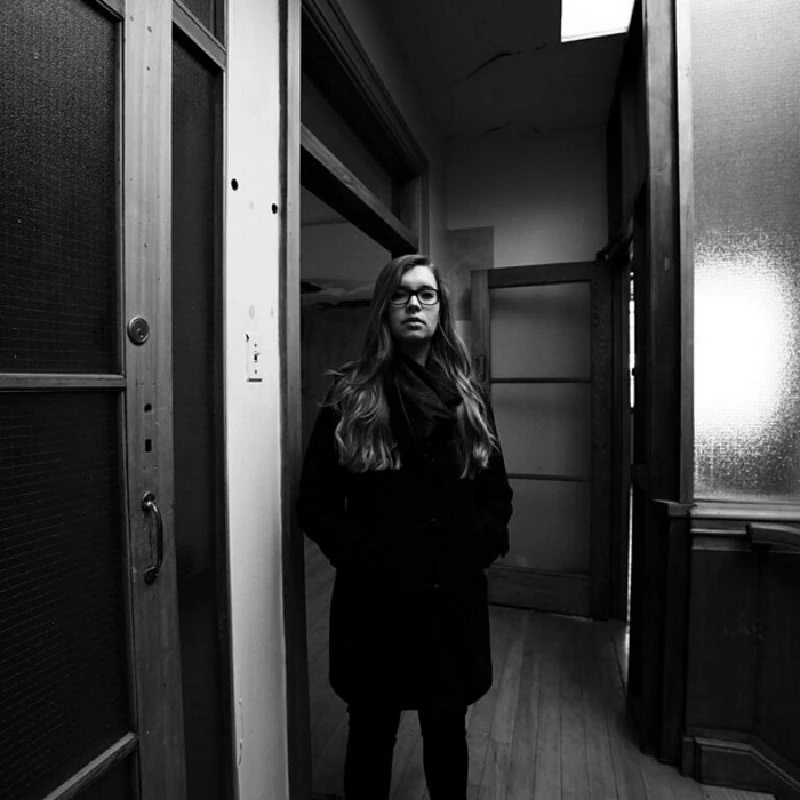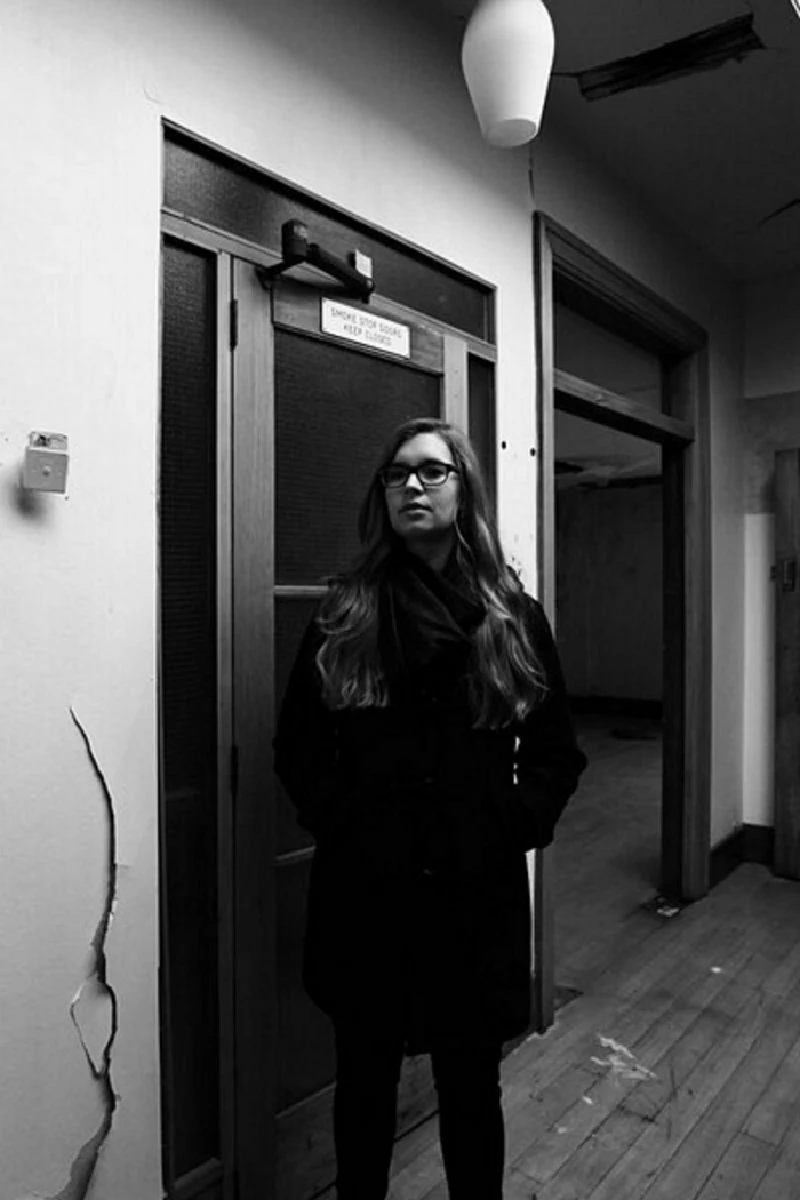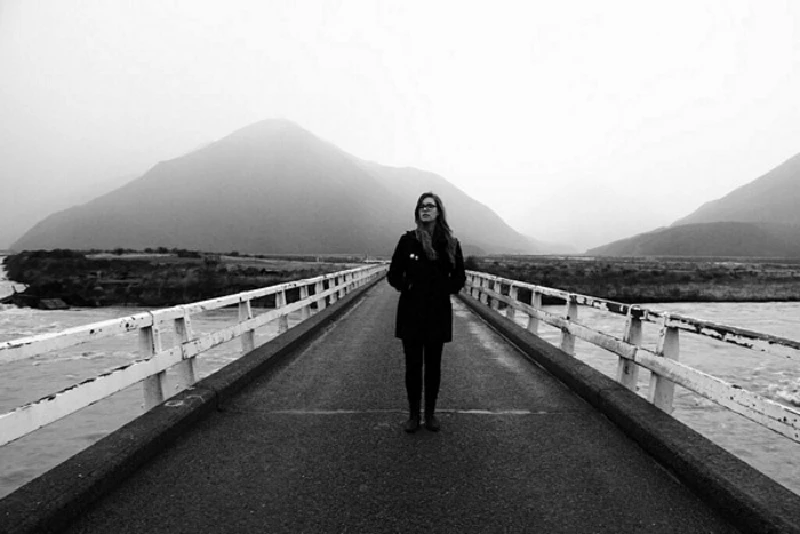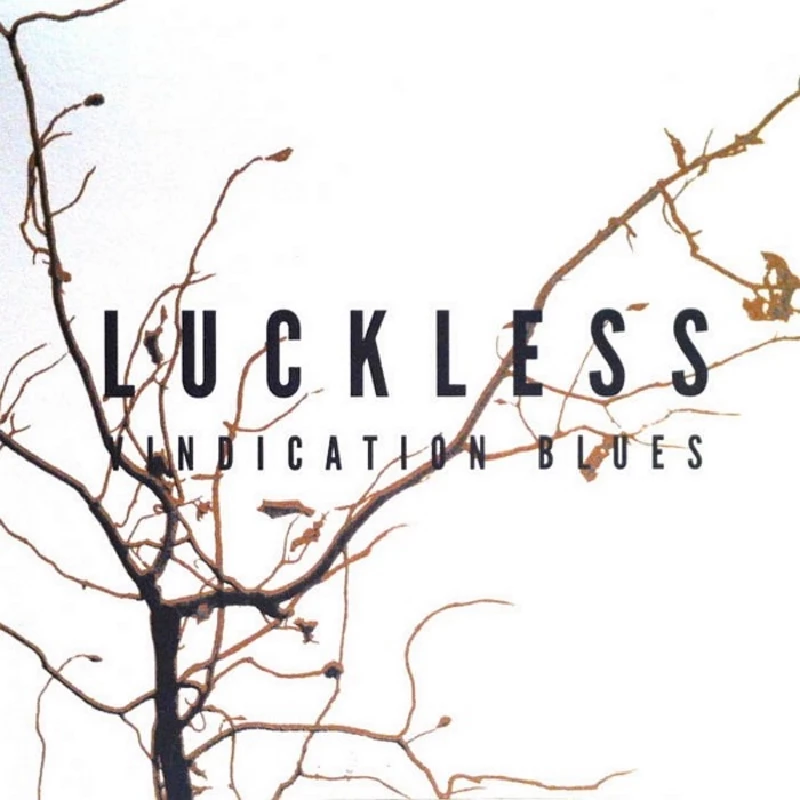Luckless - Interview
by John Clarkson
published: 23 / 10 / 2015

intro
John Clarkson talks to New Zealand alternative rock musician Ivy Rossiter about her band Luckless, its second album 'Vindication Blues' and her recent relocation to Berlin
Luckless is the project of Ivy Rossiter, a singer-songwriter and musician from New Zealand. Rossiter, who relocated earlier this year to Berlin, has now recorded as Luckless two albums, an eponymous record which came out in 2012 and 'Vindication Blues' which was released in 2014. 'Vindication Blues' is a scorched, pedal effects-laden alternative rock album, which tells of both the after effects of a broken love affair and the rebuilding after it experienced two earthquakes of Lyttelton, the small New Zealand community in which Rossiter recorded it. Pennyblackmusic spoke to Ivy Rossiter about Luckless, 'Vindication Blues', which is about to be re-released in a vinyl edition, and her reasons for moving to Europe. PB: You have described 'Vindication Blues' in a previous interview as being about "the feeling of despondency or despair experienced when one's pessimistic predictions have been true." Many of the songs on it seem to be about the aftermath of a romance told from the perspective of the one left behind when the other party has jumped ship for someone else. Do you see 'Vindication Blues' as a concept album of sorts? IR: I didn’t start writing this album with any concept in mind. The process of writing was much more personal and organic than that. The songs on this album were, however, all written within about eight months, during a time of great personal upheaval, so those changes certainly informed the songs on the album. I’m happy to hear that they fit together so well. PB: You're a huge reader and your lyrics come across as particularly literary. How much of your lyrics are based on personal experience and how much of it comes from imagination? IR: Often a personal feeling, experience, or impulse will set me off down the track of a song, but whether that initial compulsion dictates what the song will be about, what it will reference, how the lyrics will take shape, is as much up to chance as anything else. Sometimes my intentions will lead in one direction, but by the end I discover that I’ve veered off into an entirely different orbit. Sometimes I’ll be writing about disparate things, some external, some internal, and they hang together as a narrative all on their own. And like most stories, songs are always better when they’re embellished a little. PB: Before you became a full-time musician between 'Luckless' and 'Vindication Blues' you worked in Auckland for Native Tongue, a music publisher. What were the most important things you learnt about being a musician from that experience? IR: I think most importantly, while I enjoyed my time with the people I worked with, I learned that the industry at large wasn’t a healthy place to live a life – either at work or as a musician. New Zealand’s music industry is very small, and is much like an echo chamber, amplifying what other artists are doing and saying and achieving; leaving little room to celebrate actions and achievements outside of the industry’s own self-sustaining system. I learned that making and presenting good work does not lead to industry support or success; some of New Zealand’s most interesting, hard working and creative musicians have been repeatedly ignored by the industry, which was, and is, disheartening to watch. I decided that I was more interested in the process of making work than courting hype, which hich is probably a good decision to make, for a musician so committed to making unfashionable music. PB: You moved from Auckland to Lyttelton on New Zealand's South Island to record 'Vindication Blues'. While it is quite near Christchurch, it is a small port town of just under 3,000 and not the most obvious place to make an album and to live. Why did you decide to more there and how long were you based there for? IR: I was touring through New Zealand with a musician called Lindon Puffin, both as separate acts, and then later with me as his backing singer. One of the tours we collaborated on was populated entirely with musicians who were then based in Lyttelton. Meeting this community of artists, learning about their work ethic, their drive, and their commitment to their art, really upended my understanding of how a musician could live and exist in New Zealand. I wasn’t satisfied with Auckland at the time,which was a very expensive and un-user-friendly city, and so I decided to see if I could make a home in the South for a while. It also has a spectacular recording studio, the Sitting Room, where I was lucky enough to make 'Vindication Blues' with some wonderful friends. http://www.facebook.com/thesittingroom PB: Lyttelton was, like Christchurch, badly affected by the New Zealand earthquakes of 2010 and 2011. 'Port in a Storm' and 'Cities of Salt' with their respective lyrics about "a broken town" and "houses of cards" seem to be as much about geographical as well as mental disintegration. Were those songs inspired by those earthquakes? What kind of affect have the earthquakes had on Lyttelton’s musical community? IR: The earthquakes are not a distant memory in Christchurch – the rebuild is taking so long, and the effects are still so visible and visceral, that the earthquakes are an ever-present constant in everyone’s lives. While I wasn’t living in Lyttelton when the earthquakes happened, my time spent there in the aftermath certainly shaped my daily life, my thoughts and my emotions about the city and its people. Immediately after the earthquakes, the Christchurch community united in the face of the upheaval and heartbreak, as entire swathes of the city were declared off limits; people were without water and sewage for weeks on end; many people had no homes to go back to, had lost colleagues or friends or family. The Lyttelton musicians united as well, playing at community events, creating collaborative projects (you can still buy the Harbour Union CD, all proceeds of which go to related charities in Christchurch - https://www.facebook.com/theharbourunion), and generally looking to each other as a source of support. When I moved to Lyttelton, the community that had been so shaped by the trauma of the earthquakes was still tightly bound together by the common experiences they were still faced with. In more recent years, the community has dispersed somewhat – to Melbourne, to Switzerland, while some are having babies and building houses and settling down – but I hope there’s a time when everyone finds themselves together again. PB: You are a self-confessed "musical nomad". You have been in Europe since May. Why did you decide to come over to Europe? IR: New Zealand is a wonderful country, a beautiful country, but it’s a very small country. The people who are open to experiencing music that is a little off-centre, or off-trend, are a wonderful and supportive community, but they are a small number spread far and wide, with many hours of highway driving in between. I can tour for three weeks in New Zealand and have already visited most of my favourite venues. Here in Europe, I can tour for three weeks and have hardly scratched the surface of a single country. The possibilities here just seem boundless, even if the scale is overwhelming at times. PB: You have based yourself in Berlin rather than perhaps the more traditional music capital of London. Why have you based yourself there? IR: I started romanticising Berlin when a handful of my friends chose Berlin over London as their musical base a few years ago; since visiting, I can see why they made that choice. The cost of living is low, the community of other musicians is diverse and welcoming, and the city itself is incredibly liberal, relaxed and open-minded, with the rest of Europe incredibly easily accessible. I think also the dissatisfaction that pushed me out of Auckland is also what sways me away from somewhere like London – the competitive nature of the music industry in London feels antithetical to the process of making good work to me. I would rather be spending my time writing songs and playing shows than counting Facebook likes or plotting PR campaigns – and mitigating the financial struggle of day-to-day living certainly helps as well. PB: You said in an early interview that "what upsets me more than the idea of not being successful in making music is the thought of not doing music at all." You left your job to go full-time in music in 2013. There must have been a lot of highs and lows since then. Has that feeling changed at all? IR: The ideation of ‘success’ is one that I struggle with daily, but each time I write a song that I feel is good enough to perform, each time I book a show in a new town, each time I meet a person who connects to my music, I try to celebrate those successes. There are lots of days when I feel I’m moving backwards, fighting a losing battle; but it just seems like these are the struggles that I’m supposed to have - or maybe that I have to have, if I want to do the things that I am fortunate enough to be able to do; perhaps they are struggles that can be solved by writing a better song; by working harder; by learning more. I’ve dreamed for so many years of playing music in Europe, that the days when I feel like ‘success’ is far away or unattainable, I just have to look at the mountains in Switzerland, or drink a beer on the street in Berlin, or marvel at a Cathedral built before anyone set foot in my country, to put myself back in my place. PB: 'Vindication Blues' is now a year old. Do you have enough songs for a third album? Do you want to record that in New Zealand or Europe? IR: I don’t yet have enough songs for a new album, but I’m always working. Most of past year has been about the logistics of travelling half way across the world, as I have booked and promoted these tours entirely independently. I am holed up in a friend’s apartment at the moment in Switzerland, with enough time left over from finalizing my next tour to actually do some writing. Some new songs will show their faces for the first time on this next tour, and I hope to be able to record a new album next year. I am very fond of my collaborators in New Zealand, and I would love to go back there to record the next album, but the fresh opportunities that Berlin offers I think are equally exciting and interesting. PB: You have got shows coming up over the next few months in London, Manchester and Bath. What other plans do you have for the immediate future? IR: I have four weeks of touring through Germany and the Netherlands in November, and then I’ll be back to the UK in December to celebrate the release of 'Vindication Blues' on vinyl through the London-based record label ‘Beautiful Strange’ (http://www.beautifulstrange.co.uk/). The rest of the season I think will be completely occupied by trying to stay warm while writing my way through my first Berlin winter. PB: Thank you. Photographs by Sabin Holloway
Band Links:-
http://www.luckless.co.nz/https://www.facebook.com/soluckless
https://twitter.com/soluckless
https://luckless.bandcamp.com
Play in YouTube:-
Picture Gallery:-



soundcloud
most viewed articles
current edition
Peter Doherty - Blackheath Halls, Blackheath and Palace Halls, Watford, 18/3/2025 and 21/3/2025Armory Show - Interview with Richard Jobson
Liz Mitchell - Interview
Deb Googe and Cara Tivey - Interview
Lauren Mayberry - Photoscapes
Max Bianco and the BlueHearts - Troubadour, London, 29/3/2025
Garfunkel and Garfunkel Jr. - Interview
Maarten Schiethart - Vinyl Stories
Clive Langer - Interview
Sukie Smith - Interview
previous editions
Heavenly - P.U.N.K. Girl EPBoomtown Rats - Ten Songs That Made Me Love....
Trudie Myerscough-Harris - Interview
Doris Brendel - Interview
Beautiful South - Ten Songs That Made Me Love...
Pulp - Ten Songs That Made Me Love...
Dwina Gibb - Interview
Kay Russell - Interview with Kay Russell
Barrie Barlow - Interview
Sound - Interview with Bi Marshall Part 1
most viewed reviews
current edition
Davey Woodward - Mumbo in the JumboNigel Stonier - Wolf Notes
Wings - Venus and Mars
Kate Daisy Grant and Nick Pynn - Songs For The Trees
Only Child - Holy Ghosts
Neil Campbell - The Turnaround
Philip Jeays - Victoria
Darkness - Dreams On Toast
Suzanne Vega - Flying With Angels
Charles Ellsworth - Cosmic Cannon Fodder
Pennyblackmusic Regular Contributors
Adrian Janes
Amanda J. Window
Andrew Twambley
Anthony Dhanendran
Benjamin Howarth
Cila Warncke
Daniel Cressey
Darren Aston
Dastardly
Dave Goodwin
Denzil Watson
Dominic B. Simpson
Eoghan Lyng
Fiona Hutchings
Harry Sherriff
Helen Tipping
Jamie Rowland
John Clarkson
Julie Cruickshank
Kimberly Bright
Lisa Torem
Maarten Schiethart